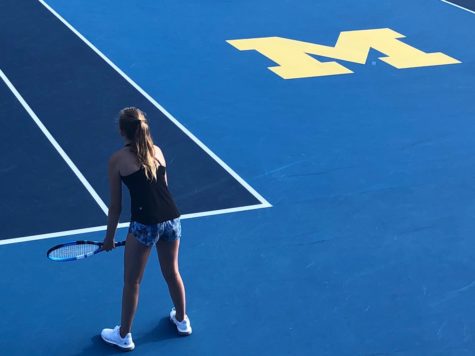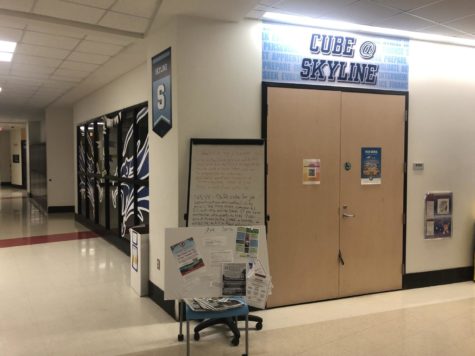Gap Years: Why Three Students Have Chosen To Take Them
As The Post began to write the Graduation Issue for the Class of 2022-23, one thing became clear: student plans vary much more widely at Skyline after graduation than it appears. While most Skyline seniors attend college immediately after they graduate, some choose to take a gap year.
With reasons ranging from athletic ambitions to international adventure, I was able to sit down with three seniors planning on taking a gap year. Although their reasoning varies, as does the way each will spend their year, each student is using the opportunity to position themselves for an exciting future.
“I was really excited by the idea of taking a gap year, but I also had this conflicting feeling of going to college with my friends,” said Teddy Shindo (‘23), resisting the pressure to conform to the normative post-high school plan. “When I was deciding, I was really thinking about what my friends wanted to do. I tried not to get affected because I didn’t know anyone else taking a gap year.”
For Shindo, who is spending their gap year in Japan, this time is an opportunity to reconnect with their culture and learn more about themself.
“When applications were starting I was overwhelmed with all the work I was doing and I hadn’t decided what I wanted to do yet,” Shindo explained, “but I thought that was good because I would have more time to think about what I want to do.”
When the application process opened, Shindo determined that taking a gap year would give them time to think about what to study in college. With circumstances allowing for them to relocate to Tokyo, Japan, including access to housing, the chance to return to the place they were born and grow made most sense in their life. Shindo will work and live in the country before likely returning to the United States for college.
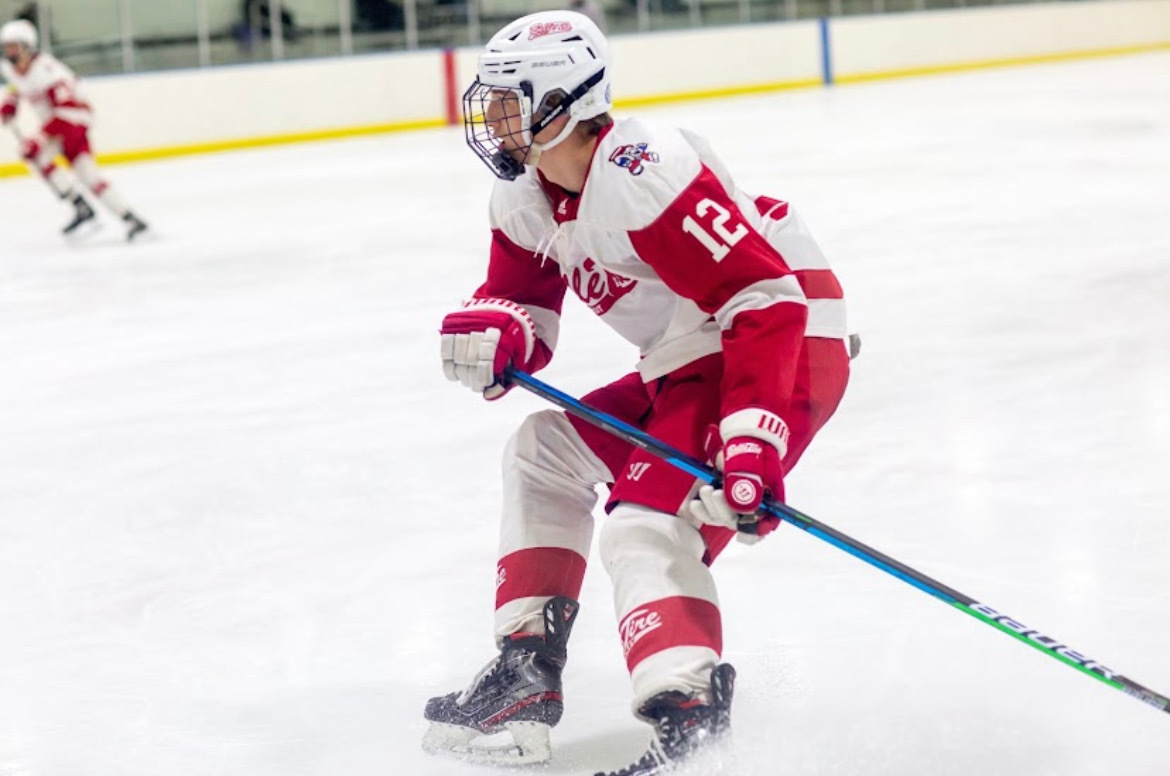
“It will give me time to really think about what I want to do, basically for the rest of my life.”
Tim Hewko (‘23) began thinking about the gap year process many years ago. For dedicated hockey players like himself, taking a gap year is more likely than not, allowing players to develop more before recruitment. In this interim, Hewko will join the North American Hockey League (NAHL). Currently a free agent, Tim expects to be invited to training camps in July and by September have an idea of where he may play.
Although he won’t be in college, the next few years are certain to be very busy for Hewko. In the NAHL, 30 teams compete against one another, traveling frequently and intensively by bus and plane.
“While I’m playing it’s very busy, I’ll be just skating 2 days a week, bus traveling 6+ hours a week and flying planes every weekend traveling to games.”
Despite definite gap year plans, Hewko wants to make an additional effort to be prepared for college in the future.
“It’s still up in the air, but one thing I’m considering is taking Community College courses to get some credits or maybe working a job.”
Hewko does not have any family experience with the gap year process. Initially, his parents were skeptical of the pathway and how realistic his post-high school plan was. However, they have since been convinced and now advocate for the post-secondary plan. Now, “my mom suggests that the high school employees at her store take one too.”
The choice to take a gap year is not always as freely made, however. One Skyline senior has chosen to take a gap year because their immigration status prevented them from applying to the colleges they wanted to and receiving financial aid.
“I’m waiting for my Social Security Number (SSN),” says the senior, whose choices have been prohibitively limited. “I’m technically not a resident yet, but I’m also not an international student. So, I’m stuck in the middle.”
They moved to the United States five years ago. Because their father is American, they were not eligible for Deferred Action for Childhood Arrivals (DACA), which protects young adults brought to the United States as children. The process of applying for an SSN is extensive. Even after spending thousands of dollars “they might not even give it to you.”
The reality of the need to delay college admission began to set in for the senior years ago. “I knew that I wasn’t going to be able to get [my number] before applying for colleges, which is really heartbreaking.”
There are many colleges this senior could not apply to because they are not a resident. At other universities, they could not apply for necessary financial aid. “We do need the financial aid,” they commented. “Coming from another country, my mother does not speak English well, preventing her from getting a high paying job, and my dad is a senior now, and I have three other siblings.”
Although private colleges do not require an SSN and do offer financial aid, the senior would be required to self-describe as “illegal.” This language made them feel marginalized, and felt this label required them to sacrifice their integrity.
“It’s not that I didn’t think they would accept me, it’s just that I don’t want to put it down there, showing on my records, because it won’t be true in 2 to 3 years. Also, this is me, but I see it as a way that they might push me down to the bottom of the list… I didn’t want [the label] to be there.”
The senior was certainly left disappointed. As they watched their friends with whom they spent their entire high school experience apply to college, the senior felt “stuck,” as though they could not “keep going.”
Nonetheless, they persisted. Next year, they plan to work, setting aside earnings to help save for college expenses. They expect to receive their SSN in September, at which point they will begin the application process. As of now, they hope to attend the University of Michigan to study international business.
“It is really disappointing, but it’s my reality. I have to accept it and wait for next year.”
Your donation will support the student journalists of Skyline High School. Your contribution will allow us to purchase equipment and cover our annual website hosting costs.
Michael Mychaliska ('23) is excited to be writing for and editing the News section this year!



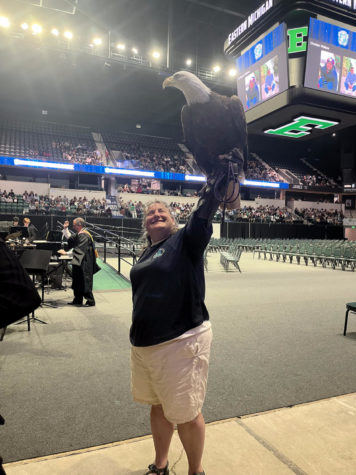

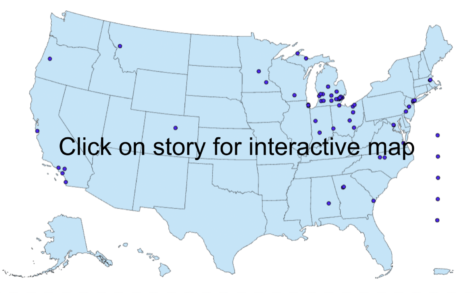
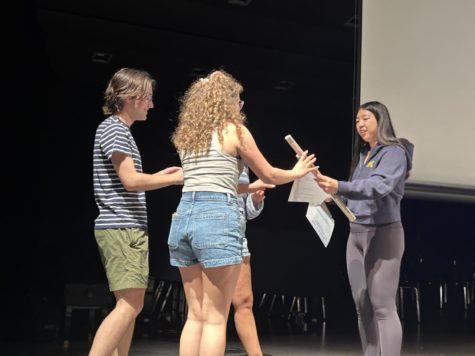
![“It makes me feel good to see [students] feel pride about themselves and their work. It has nothing to do with me career wise…I saw them get like excited and they had to get more critical…It helps me because it makes us feel proud of our students…My students are my artwork, my students are my portfolio.” Credit: Video Recording](https://skylinepost.org/wp-content/uploads/2023/06/IMG-9507_1-475x423.jpg)
